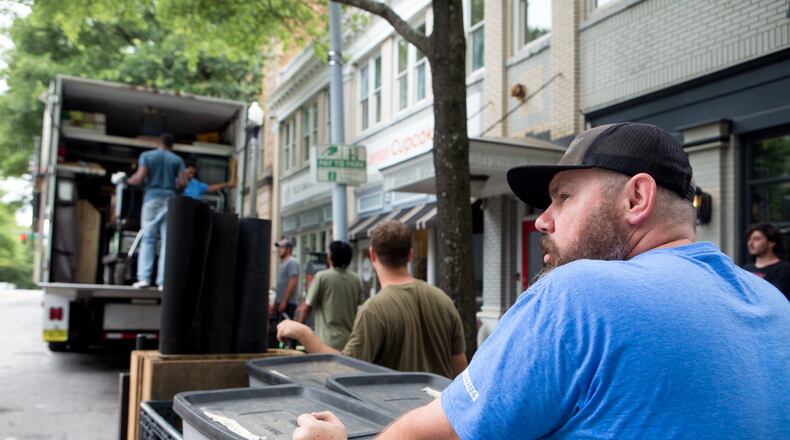“Going to the movies” meant something different for my family than it does for most.
My grandfather started a truck and tool rental business in Decatur in 1975. Four years later, my father rented equipment to a production company filming in Georgia. Visiting his client on set, he learned that the film crew had to transport their trucks and trailers from Los Angeles – a slow, inefficient process. They told my dad that if he had all this equipment, they’d just rent it from him.
That’s how our family business, Lightnin’, got into the film industry. My father convinced my grandfather to take a leap of faith and invest heavily in specialty trucks and trailers used on movie sets.
In the 1980s, the industry was small, but so were we. We grew up with the local crew base and learned the ropes as our business expanded. “In the Heat of the Night” was our first big TV series in Georgia, and though major movies in Georgia were few and far between, there was the occasional project like “Forrest Gump.”
To keep the company growing, we started to do business in other states, and even opened a second office in New York. We watched as other states like North Carolina and Louisiana had plenty of work due to tax credit programs. Georgia was always home, but we had to travel a lot.
That all changed in 2008, when the Georgia film tax credit came into effect.
Our business renting trucks, trailers, and generators to the film industry exploded, and it happened just in the nick of time. The economic crash that year destroyed family businesses like ours all around the country. The influx of the film industry gave us stability, even as we had to close our RV dealership, a sector decimated during the recession.
Before the tax credit, Lightnin’ had a payroll of up to 45 people. We now employ 100, and 85 of those are Georgians. Twelve years later, we’re servicing three times as many productions per year, and after working out of state for many years, a majority of our work is now here. We do business in every metro Atlanta county, but you’re just as likely to see us on sets in Savannah, Augusta, and Rome.
The trajectory of our family business is no outlier. There are similar stories around the state for small businesses that include lumber companies, hotels, carpenters, electricians, caterers, welders, and more. They’re all earning a paycheck from the hundreds of productions filmed annually in Georgia.
The growth we’ve experienced reflects what’s happening across Georgia. The state has gone from one soundstage to more than 100 and from one studio to 24. That private sector investment is matched by taxpayer support for the Georgia Film Academy, where 6,000 students are enrolled and graduates earn an average of $84,000. Georgia colleges have launched bachelors’ and masters’ programs for film, like Emory University’s BBA program, of which I’m a graduate.
A recent Georgia Tech study found that the industry spent $4.2 billion in the state, delivered an economic impact of $8.6 billion, and created 51,000 jobs. The huge progress we’ve made this decade will pale in comparison to what will come in the 2020s. With so many new streaming platforms, the demand for content right now is insatiable. More content means more productions. More productions means more spending in all of our local communities. That growth is coming to Georgia.
Gov. Brian Kemp recently remarked that there are “a lot of hard-working Georgians in that [film] industry, and it has put us on the map in a lot of ways.” He’s right. I see a good number of those hard-working Georgians every day when I show up to my office and “go to the movies.” The film tax credit has achieved its aim of growing a new Georgia industry. It’s a story of success that’s fit for the big screen.
Greg Lewis is a third-generation executive at his family’s business, Lightnin’ Production Rentals, in Lawrenceville.
About the Author
Keep Reading
The Latest
Featured



